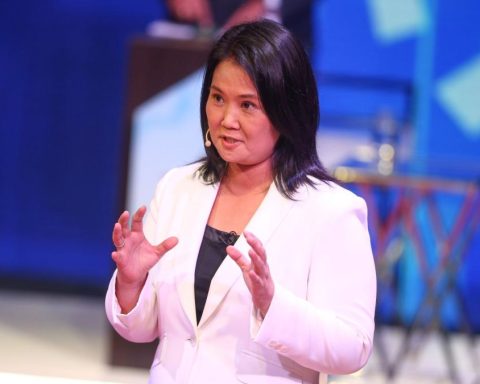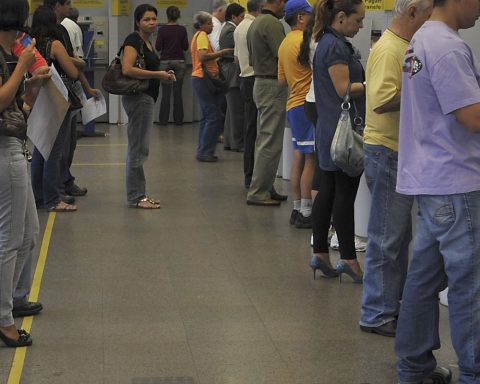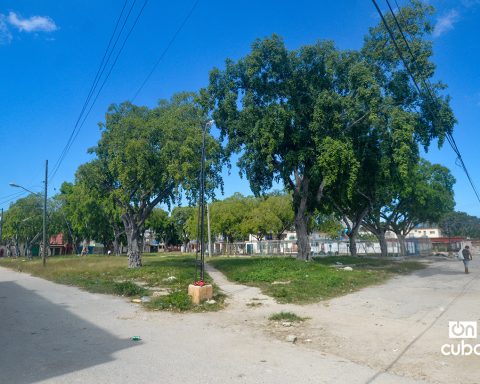The Chamber of Deputies approved this Thursday and sent the bill that recognizes the Argentine Sign Language (LSA) as a natural and native language throughout the national territory and highlights the importance of its preservation and dissemination as part of the linguistic and cultural heritage of the community.
The initiative was sanctioned with the endorsement of 229 votes that were contributed by the Frente de Todos, Juntos por el Cambio, Interbloque Federal, Provincias Unidas, Movimiento Popular Neuquino, Ser, Frente de Izquierda, Libertad Avanza and Avanza la Libertad.

The president of the body, Cecilia Moreau, anticipated at the end of the vote that this Thursday the project approved unanimously will be sent to the National Senate.
The session was attended by members of the Argentine Confederation of the Deaf who observed the debate from the premises and were able to follow the alternatives thanks to the sign language interpreter who is always present in all the deliberations of the legislative body.
Also, the deputies and deputies placed blue handkerchiefs on their benches with inscription “Argentine Sign Language”.
The historical claim of the Argentine Confederation of the Deaf was also correlated with a signature collection campaign launched through the Change platform in which it has gathered more than 130,000 adhesions in demand of the law.

The project discussion
When opening the debate on the initiative, the representative of Juntos Somos Río Negro, Luis Di Giacomopresident of the Commission on Disability of the Chamber of Deputies, stressed that it is “a particular visual-gestural language” and highlighted that “language areas are activated by listening and deaf children do not receive information”, maintaining that sign language “has to be officialized and can be reproduced from the deaf community itself.”
“Not only are they not disabled, but they learn two languages, the mother tongue and the sign language,” said the legislator, who stated that “this law aims at recognizing sign language to eliminate communication barriers and give visibility in a media outlet nonverbal to put deaf people on an equal footing with everyone else.

The deputy of the Front of All Grace Caselles He stressed that the project “has achieved the consensus of all of the blocks” to sign the majority opinion and stressed that “sign language implies a human right for deaf people, being able to have a natural and own language is obviously a path of social inclusion, of intellectual and affective development”.
He added that “those of us who are educators know that there is a correlation between the development of thought and language and that is why we bet on the bilingual modality”.
Meanwhile, the deputy of the Left Front Nicholas del Caño said that “this law is an elementary human right. The lack of accessibility to the LSA at an early age, in girls and boys, has very serious consequences; vulnerability and bullying situations must end.”
The FDT legislator Gisella Marziotta He assured that this project “is a first initial step that we are taking today”, but he said that he hopes that next year they will be discussing “mandatory training for state officials in sign languages” at the campus and congratulated the team of interpreters from the Chamber of Deputies.
“When we talk about the fact that the group of deaf people has to be integrated into society, we also have the responsibility of acquiring that knowledge to be able to get closer and be able to communicate with them,” he added.

The radical deputy Marcela Coli pointed out that “sign language has a concept, a natural and original language that forms a historical, immaterial legacy as part of linguistic identity and, fundamentally, the cultural heritage of deaf people in our territory.”
In turn, the FDT deputy edward valdes He pointed out that “today is a day in which we come to consecrate the inalienable rights of every human person. We are talking about a law that benefits a large part of society. The recognition of the LSA comes to guarantee inclusion and participation.”
In turn, the deputy of Pro karina bachey He pointed out that “today we can say that we are going to obtain the approval of a law that leads to equality, rights and inclusion; recognizing means guaranteeing their full participation in the different spheres of society.”
The purpose of the project is to recognize LSA as a natural and original language, which forms an intangible historical legacy as part of the linguistic identity and cultural heritage of deaf people, and which guarantees their participation and full inclusion, as well as people who, for whatever reason, choose to communicate in that language.

A bridge to other rights
Associations and institutions of deaf people celebrated The importance of obtaining the average sanction to the official recognition of the Argentine Sign Language as its natural and original language throughout the Argentine territory because it will be “the basis for presenting other types of projects that facilitate accessibility in other areas” and that promote the acquisition of that language from an early age .
“Sign language is a language like any other, and the approval of the half sanction of the bill for the Recognition of Argentine Sign Language is a basis for presenting other types of initiatives in other areas such as, for example, labor , justice and health”, said this Thursday to Télam the head of the Argentine Confederation of the Deaf (CAS)Enzo Rizzi.
After pointing out that the bill “seeks to give sign language a linguistic status”, Rizzi reiterated that “many deaf today are deprived of health or access to justice, “because they do not have interpreters, but also because of the look of doctors before this language”.
“When deaf people are born into hearing families, they consult doctors, and they advise them not to learn sign language, but to have the implant, so that they can verbalize, but we want sign language to be incorporated in early childhood,” he explained. Rizzi recounted that he was born deaf and “only at the age of 6 did I have access to sign language.”
“If you think about it, it is too late, because from the time you are born to the age of 6 it is a fundamental stage to acquire the language; then you will be able to acquire Spanish.”
“To deprive any child of a language is to take away the right to adequately develop their emotions and thoughts from the first years of life. For decades, thousands of deaf and hard of hearing children continue without achieving native fluency and a complete command of at least one natural language, being harmed in their subsequent personal development and social integration,” the organization maintains.
Meanwhile, the owner of the Mutual Assistance Association for Deaf-Mutes (ASAM)Claudio Bitti, celebrated the half approval of the draft National Law for the Recognition of Argentine Sign Language as “a historical fact, after the trajectory of work for more than 20 years.”
“It is very exciting, we hope it is approved” because that will imply “all the accessibility and improve our quality of life,” Bitti told Télam.
According to the World Federation of the Deaf, There are 70 million people who use sign language as their first language globally.Y in South America only two countries do not have an officially recognized sign law: Guyana and Argentina.
“We are summoning all the deaf people to draw attention and make visible the recognition of sign language. This implies the identity and cultural linguistic heritage of deaf people,” remarked Lucas Larroca, vice president of the CAS.
Natalia, a deafblind member of that organization, explained that those with this condition “mix in schools with all disabilities where they have protactile, which is like sign language but tactile.” “You have to separate them from that education with disabilities and that they can be linked to education for the deaf,” she said. In dialogue with Télam, Natalia stated that “the law can be a bridge of communication, a link beyond braille.”
The details of the opinion
• The opinion indicates that sign language is understood as that which is transmitted in the visuospatial modality and explains that LSA has a complete, complex grammatical structure that is different from Spanish.
• “Being visual, the LSA is fully perceptually accessible to deaf people, as well as to all people who, for whatever reason, choose to use the LSA to communicate, convey their desires and interests, learn, defend their rights and build a positive linguistic and cultural identity that allows them to fully participate and transcend in all aspects of social life,” the opinion states.
• It also establishes that organizations of legitimate consultation on the LSA will be those organizations made up entirely of deaf people that represent them throughout the territory of the Argentine Republic and that are officially constituted and registered with recognition from the national, provincial and municipal States.
• The project also authorizes the National Government to encourage the use of the LSA by all people who, for whatever reason, choose to communicate in said language, with the aim of having effective and full accessibility to social life; Eliminate communication and attitudinal barriers, in order to facilitate access to communication and information.


















